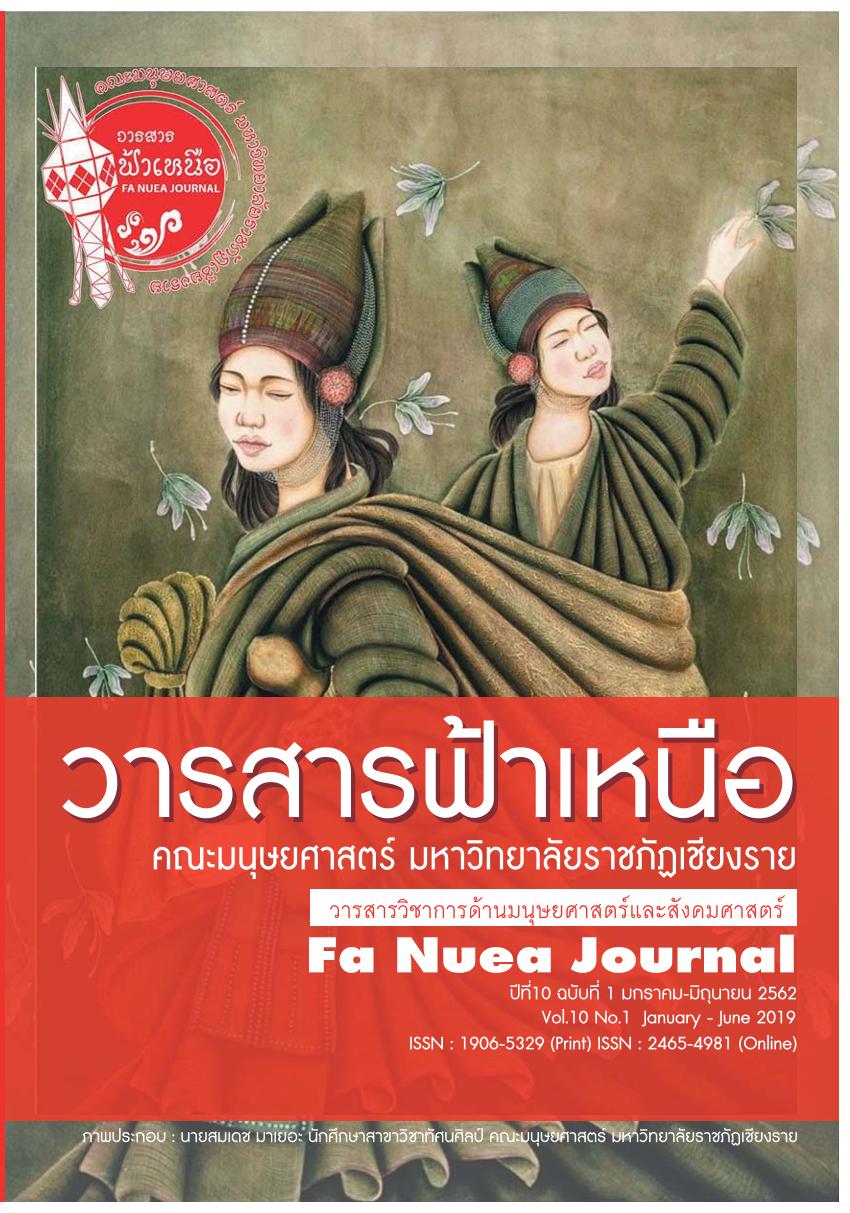THE LANGUAGE USAGE FOR CREATING HUMOUR IN THE SHORT FOLKLORE (JIAKOM)
Main Article Content
Abstract
This research was purposed to study language usage for creating humour in the short folklore (Jiakom) based on a Semantics and Pragmatics approach. The result appeared that from analyzing dialogues in 57 short folklore Jiakom) from the Northern Thai encyclopedia, there was language usage for creating humour used Semantically, they were Synonymy Polysemes and Homophones. And there was language uage for creating humour used Pragmatical they were Direct speech act, In direct speech act and Implication.
Article Details

This work is licensed under a Creative Commons Attribution-NonCommercial-NoDerivatives 4.0 International License.
Articles, information, content, pictures, etc. which have been published in Fa Nuea Journal, are copyright of Fa Nuea Journal. If any person or party wishes to disseminate all or part of it or take any action must be referenced. Do not use for commercial purposes and do not modify (CC-BY-NC-ND). For further details, please access at Attribution-NonCommercial-NoDerivatives 4.0 International (CC BY-NC-ND 4.0)
References
ทัศนาลัย บูรพาชีพ. (2545). ภาษาศาสตร์สำหรับการแปลเบื้องต้น.กรุงเทพมหานคร: คณะมนุษยศาสตร์มหาวิทยาลัยเกษตรศาสตร์.
พัชรี พลาวงศ์. (2545). ความรู้เบื้องต้นทางอรรถศาสตร์.กรุงเทพมหานคร:มหาวิทยาลัยรามคำแหง.
เพียรศิริ วงศ์วิภานนท์. (2544). “ความหมาย”. ภาษาไทย 3 กรุงเทพมหานคร:ห้างหุ้นส่วนจำกัดอรุณการพิมพ์.
มูลนิธิสารานุกรมวัฒนธรรมไทย ธนาคารไทยพาณิชย์. (2542). สารานุกรมไทยวัฒนธรรมไทย ภาคเหนือ เล่ม 4. กรุงเทพมหานคร: บริษัท สยามเพรสแมเนจเม้นท์ จำกัด.
สปัน ตันโสภณ. (2548). วิเคราะห์เนื้อหาและกลวิธีการสร้างอารมณ์ขันในวรรณกรรม เพลงลูกทุ่งแนวขำขัน. วิทยานิพนธ์มหาบัณฑิต สาขาภาษาไทย.มหาวิทยาลัยนเรศวร: จังหวัดพิษณุโลก.
อุดม รุ่งเรืองศรี. (2528). เจี้ยก้อม: เรื่องขำขันล้านนา. เชียงใหม่: คณะมนุษยศาสตร์, มหาวิทยาลัยเชียงใหม่.
Grice,H.P. (1975). Logic and Conversation. In Syntax and semantic:Speech Act Volume3. Edited by P.Cole and J.morgams.Newyork: Academic Press.
Searle,J.R. (1969). Speech Acts: An Essay in the Phillosophy ofLanguage. Cambridge: Cambridge University Press.


